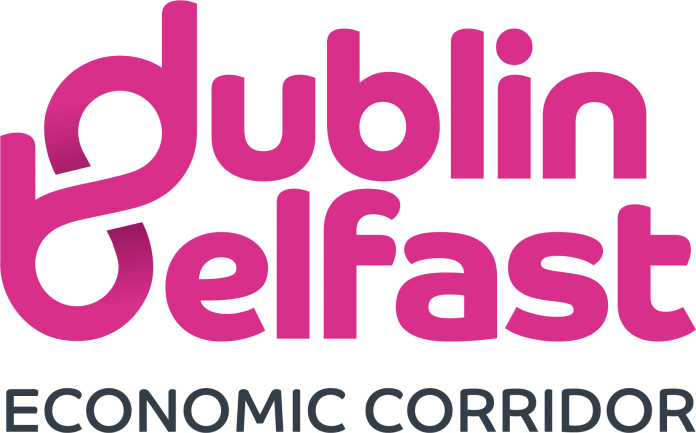
Armagh City, Banbridge and Craigavon Borough Council is one of eight local authorities that came together today to launch the Dublin Belfast Economic Corridor in response to challenges facing the region, which have been identified by a joint report from Dublin City University and Ulster University.
The eight local authorities are:
- Armagh City, Banbridge and Craigavon Borough Council
- Belfast City Council
- Dublin City Council
- Fingal County Council
- Lisburn & Castlereagh City Council
- Louth County Council
- Meath County Council
- Newry, Mourne and Down District Council
The report, The Dublin-Belfast Economic Corridor: Current Profile, Potential for Recovery & Opportunities for Cooperation, states that this is an opportune time to create a north-south Economic Corridor given the challenges the region faces as it comes to terms with the impact of the United Kingdom’s exit from the European Union and the Covid-19 pandemic.
Lord Mayor, Councillor Kevin Savage said: “Opportunities exist to grow indigenous business, to establish working clusters of key sectors, leverage the appetite for collaboration and use the Corridor as the driving force for economic development in the region and nationally.”
In 2018, the eight Councils located along the Corridor and the two Universities came together to work collectively to find ways of realising the potential benefits of further development of the Corridor. This led to the establishment of a Partnership Steering Group made up of the eight Council Chief Executives and the Presidents of the two universities.
The Steering Group’s immediate objective is to leverage the network’s resources in areas which can have a positive impact and add significant value to the economic development of the region at a time of great economic and social uncertainty.
A working group of local government and university staff was subsequently formed and tasked with developing a series of cooperative initiatives and projects to begin to realise this objective. The report published today is the first output of their collective work over the past three years.
Following today’s launch and the publication of the Report, the next step will be to establishing working governance structures which will balance oversight and day to day activity. Oversight will be provided by an Oversight and Governance Board. This will comprise of 24 councillors, three from each council. Lord Mayor, Councillor Kevin Savage, Councillor Brian Pope, Chair, and Councillor Thomas O’Hanlon, Vice Chair, will represent council on the Oversight and Governance Board.
The Chief Executive of Armagh City, Banbridge and Craigavon Borough Council said: “There is awareness among all those involved in the Dublin Belfast Economic Corridor Project that developing a strong ethos of co-operation will require time, energy and support. Objectives will be set for achievement in the medium to long-term and based on a realisation that local actions can deliver strategic objectives in a practical way.”
Key sectors along the Corridor include Advanced Manufacturing, ICT, Agri-Food, Professional Services, Financial Services, Constructions and Tourism while among the challenges facing the region in the coming years are adapting to Brexit, Climate Change and transformation to a low carbon economy, low population density and an ageing population.
Trevor Lockhart, Fane Valley Group Chief Executive, who spoke at the event, said: “The Dublin to Belfast corridor already plays an important role in trade for businesses both sides of the border and it is clear that closer co-operation could bolster the economic prospects of the area. This launch event will provide further impetus to work together to strengthen linkages, particularly in agri-food, and create an economic powerhouse with global reach which can benefit us all.”
The launch event, which was hosted by economist David McWilliams, featured interviews with Northern Ireland’s Minister for Finance, Conor Murphy MLA; Tánaiste and Minister for Enterprise, Trade and Employment, Leo Varadkar TD; Minister for Housing, Local Government and Heritage, Darragh O’Brien TD, and Robin Walker MP, Minister of State for Northern Ireland.
Among the online attendance were the eight leaders of each Council, councillors from across the region and the eight Council Chief Executives as well as members of their senior management teams.
A website, www.dbec.info, has been established as has a presence on social media with the creation of a Twitter account, @DBECIreland, and a LinkedIn account.







